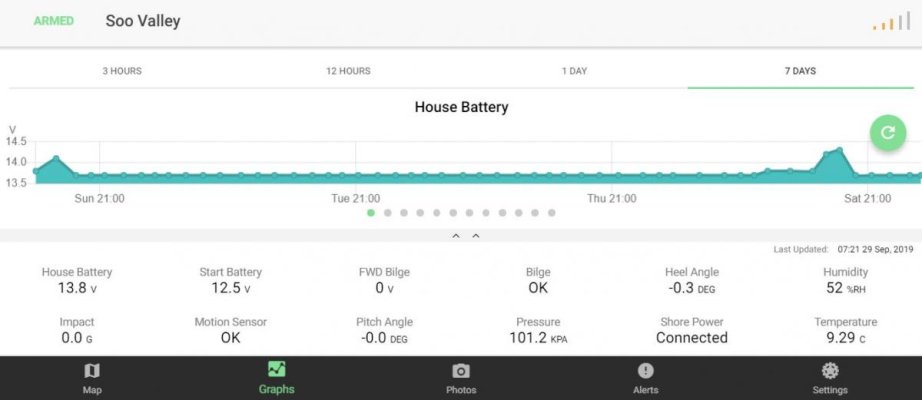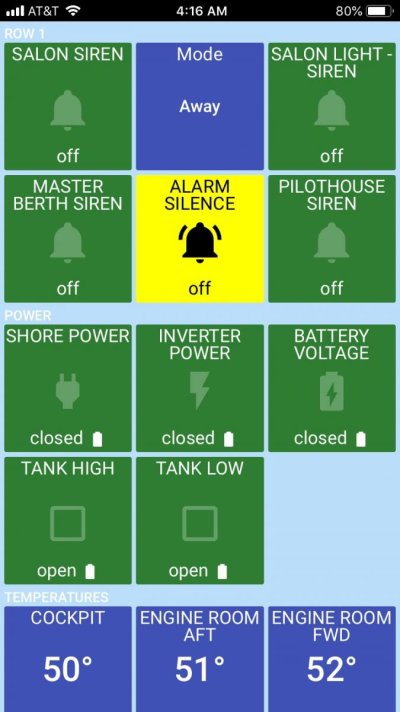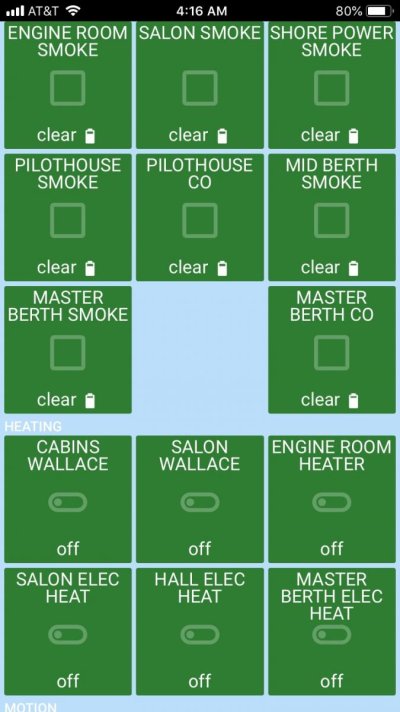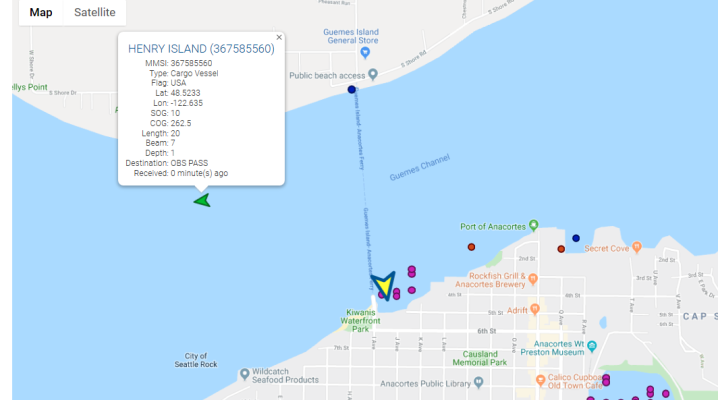Sitting at home tonight, I’m checking in on the boat.

I installed a floathub earlier today and it’s absolutely working as intended. I can see that the wind has died down a bit, my current battery voltage off just a tad due to resistance by the time it gets to the breaker(will need to track that down now!). I can see my middle bulge pump cycled twice (both times a test after installing). I did not leave an ais source running, but earlier today I could remotely see the ais targets around my vessel and this unit can stream to ais services as a shore based reporting location, or maybe even not so shore based too.
It also tracks gps location, heading, speed and can send me text alerts.
In fact, I could leave the boat in an anchorage and check that I had not drug anchor while up at town.
Took just over an hour, mostly pulling a few short wires to monitor bilge pumps and connecting to NMEA. Worked first time and the setup only took about 15 minutes.
Will be interesting to tabulate all my bulge pump runs over the course of a week/month.
Best part is this little unit is dirt cheap. Was just over $200 since I sprung for one with cellular built in, but it will work over WiFi when at the slip.
So far, this has been way easier than other methods I’ve used to monitor from afar.

I installed a floathub earlier today and it’s absolutely working as intended. I can see that the wind has died down a bit, my current battery voltage off just a tad due to resistance by the time it gets to the breaker(will need to track that down now!). I can see my middle bulge pump cycled twice (both times a test after installing). I did not leave an ais source running, but earlier today I could remotely see the ais targets around my vessel and this unit can stream to ais services as a shore based reporting location, or maybe even not so shore based too.
It also tracks gps location, heading, speed and can send me text alerts.
In fact, I could leave the boat in an anchorage and check that I had not drug anchor while up at town.
Took just over an hour, mostly pulling a few short wires to monitor bilge pumps and connecting to NMEA. Worked first time and the setup only took about 15 minutes.
Will be interesting to tabulate all my bulge pump runs over the course of a week/month.
Best part is this little unit is dirt cheap. Was just over $200 since I sprung for one with cellular built in, but it will work over WiFi when at the slip.
So far, this has been way easier than other methods I’ve used to monitor from afar.








